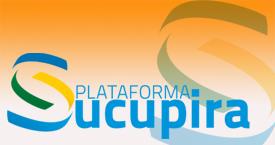The constitutional protection of worker’s rights in confrontation with the advances of artificial intelligence
Abstract
Introduction: The emergence of new technologies and their growing use in the labor market directly implies the structure of society that is already accustomed to human labor since the First Industrial Revolution, giving rise to the problem of technological (un)employment.
Objective: The objective of this work is to analyze the constitutional protection granted to workers in the face of the automation of their jobs, discussing the functions of Labor Law and the ethical issues involved about the possible replacement of human labor by artificial intelligence, as well as the impact of this technology on sustainability and the creation of green jobs.
Methodology: To conduct the present study, bibliographic, exploratory and qualitative research methodologies were used, based on doctrinal and legal materials on the subject.
Results: It is perceived that the constitutional protection of workers in the face of automation is simple, so that the application of AI in the labor market will bring negative and positive impacts to jobs. The imminent technological unemployment can be generated on a large scale if the ethical role of work in society is not respected, otherwise, there will be a positive impact on sustainability and the creation of decent jobs;
Conclusion: Analyzing that the adoption of AI in world society is promising, if used correctly it guarantees and expands the protection of labor rights, acting positively in respect for the functions of Labor Law. However, this process depends on legal mechanisms, since the simple constitutional provision is not sufficient and effective to equalize the effects of the application of this technology in the reality in which we live.
KEYWORDS: constitutional law; functions of labor law; green jobs; artificial intelligence; sustainability.
Downloads
References
ALVES, Amauri Cesar. Direito do trabalho essencial: doutrina, legislação, jurisprudência, exercícios. 1. ed. São Paulo: LTr, 2013.
ALVES, Aroldo Alexandre. Automação e emprego: análise crítica do inciso XXVII do artigo 7º da Constituição Federal de 1988. 2015. 56 f. Monografia (Bacharelado em Direito) – Faculdade Reinaldo Ramos-FAAR, Centro de Educação Superior Reinaldo Ramos-CESREI, 2015. Disponível em: https://www.cesrei.edu.br/repositorio/wp-content/uploads/2022/11/AROLDO-ALEXANDRE-ALVES.pdf. Acesso em: 9 ago. 2024.
BAINBRIDGE, Lisanne. Ironies of automation. Automatica, Oxford, v. 19, n. 6, p. 775-779, 1983. Disponível em: https://ckrybus.com/static/papers/Bainbridge_1983_Automatica.pdf. Acesso em: 18 ago. 2024.
BARROS, Veronica Altef; PADILHA, Norma Sueli. Meio ambiente do trabalho e a indústria da construção sustentável: análise no contexto da sustentabilidade e trabalho decente. In: Revista Jurídica Luso-Brasileira, Lisboa, v. 3, n. 4, p. 1435-1463, 2017. Disponível em: https://www.cidp.pt/revistas/rjlb/2017/4/2017_04_1435_1463.pdf. Acesso em: 4 set. 2024.
BIBBY, K. S. et al. Man's Role in Control Systems. IFAC Proceedings Volumes, v. 8, n. 1, pt. 3, p. 664-683, aug. 1975. Disponível em: https://www.sciencedirect.com/science/article/pii/S1474667017676122/pdf?md5=0d05d8a39a47ad35502070e62de720a3&pid=1-s2.0-S1474667017676122-main.pdf. Acesso em: 18 ago. 2024.
BRASIL. Assembleia Nacional Constituinte. Subcomissão da Ciência e Tecnologia e da Comunicação: anteprojeto, aprovado em 22 maio 1987. Brasília, DF: Assembleia Nacional Constituinte, [1987]. Disponível em: https://www2.camara.leg.br/atividade-legislativa/legislacao/Constituicoes_Brasileiras/constituicao-cidada/o-processo-constituinte/comissoes-e-subcomissoes/comissao8/ANC_1988_anteprojetoVIIIb3publicao.pdf. Acesso em: 13 ago. 2024.
BRASIL. Assembleia Nacional Constituinte. Subcomissão da Ciência e Tecnologia e da Comunicação: apresentação de emendas. Brasília, DF: Assembleia Nacional Constituinte, [1987]. Disponível em: https://www.camara.gov.br/internet/constituicao20anos/DocumentosAvulsos/vol-211.pdf. Acesso em: 17 ago. 2024.
BRASIL. Assembleia Nacional Constituinte. Subcomissão da Ciência e Tecnologia e da Comunicação: relatório e anteprojeto da Relatora Constituinte Cristina Tavares. Brasília, DF: Assembleia Nacional Constituinte, [1987]. Disponível em: https://www.camara.gov.br/internet/constituicao20anos/DocumentosAvulsos/vol-210.pdf. Acesso em: 13 ago. 2024.
BRASIL. [Constituição (1988)]. Constituição da República Federativa do Brasil de 1988. Brasília, DF: Presidência da República, 2023. Disponível em: http://www.planalto.gov.br/ccivil_03/constituicao/constituicao.htm. Acesso em: 13 ago. 2024.
BRASIL. Decreto-Lei n.º 5.452, de 1 de maio de 1943. Aprova a Consolidação das Leis do Trabalho. Diário Oficial da União: seção 1, Rio de Janeiro, ano 82, n. 184, 9 ago. 1943. Disponível em: https://www.planalto.gov.br/ccivil_03/decreto-lei/del5452.htm. Acesso em: 1 set. 2024.
BRASIL. Supremo Tribunal Federal. Ação Direta de Inconstitucionalidade 5.766. Lei 13.467/2017. Reforma Trabalhista. Regras sobre gratuidade de justiça [...]. Requerente: Procurador-Geral da República. Relator: Min. Luís Roberto Barroso, 20/10/2021. Disponível em: https://portal.stf.jus.br/processos/detalhe.asp?incidente=5250582. Acesso em: 2 set. 2024.
CARPES, Ataliba Telles; GÓES, Maurício de Carvalho. De volta para o futuro: green jobs, migrações e trababilidade. Apontamentos de novos horizontes para o direito do (ao) trabalho. In: Revista de Direito do Trabalho e Seguridade Social, São Paulo, v. 212, p. 1-16, jul./ago. 2020. Disponível em: https://repositoriodigital.trt21.jus.br/bitstreams/51d93528-b56f-41e1-8cd2-29e8d321a37d/download. Acesso em: 7 set. 2024.
DELGADO, Mauricio Godinho. Curso de direito do trabalho. 19. ed. rev. atual. São Paulo: LTr, 2020.
FERREIRA, Adriano Fernandes; RODRIGUES, Bianka Caelli Barreto. Inteligência artificial e o meio ambiente laboral sustentável. In: ORSINI, Adriana Goulart de Sena; SANTOS, Jackson Passos; MARQUES JÚNIOR, William Paiva (coord.). Direito do trabalho e meio ambiente do trabalho III. Encontro Virtual do CONPEDI, 8., 2024, Florianópolis. Coletânea [...]. Florianópolis: CONPEDI, p. 232-248, 2024. Disponível em: http://site.conpedi.org.br/publicacoes/v38r977z/bdt3ne7q/PZ03n47ZSRqPV6Vn.pdf. Acesso em: 27 ago. 2024.
GROOVER, Mikell P. Automation. In: ENCYCLOPEDIA Britannica. 19 jul. 2024. Disponível em: https://www.britannica.com/technology/automation. Acesso em: 19 ago. 2024.
GUIMARÃES, Ricardo Pereira de Freitas; GALDURÓZ FILHO, Marco Aurélio Fernandes. Conexão filosofia e direito do trabalho. Campinas, SP: Lacier Editora, 2024.
INSTITUTO BRASILEIRO DE ENERGIA RECICLÁVEL. O papel da inteligência artificial na otimização da energia renovável. 22 abr. 2024. Disponível em: https://iberbrasil.org.br/blog/2024/04/22/o-papel-da-inteligencia-artificial-na-otimizacao-da-energia-renovavel/#:~:text=A%20IA%20tem%20o%20potencial,energia%20mais%20eficiente%20e%20sustent%C3%A1vel. Acesso em: 7 set. 2024.
KROST, Oscar; GOLDSCHMIDT, Rodrigo. Inteligência artificial (I.A.) e o direito do trabalho: possibilidade para um manejo ético e socialmente responsável. In: Revista do Tribunal Superior do Trabalho, São Paulo, v. 87, n. 2, p. 55/71, abr./jun. 2021. Disponível em: https://juslaboris.tst.jus.br/bitstream/handle/20.500.12178/190014/2021_krost_oscar_inteligencia_artificial.pdf?sequence=1&isAllowed=y. Acesso em: 4 set. 2024.
MARTINS, Sérgio Pinto. Direito do Trabalho. 38. ed. São Paulo: SaraivaJur, 2022.
MAYOS, Gonçal. Vulnerabilidad, precarización y cambio social: del capitalismo nofordista al postfordista. In: POLIDO, Fabrício Bertini Pasquot; REPOLÊS, Maria Fernanda Salcedo (org.). Direito e vulnerabilidade. 1. ed. São Paulo: Oficina das Letras; Belo Horizonte: Programa de Pós-Graduação em Direito; Universidade Federal de Minas Gerais – UFMG, 2016. p. 90-122.
McCARTHY, John. et al. A Proposal for the Dartmouth Summer Research Project on Artificial Intelligence. 31 ago. 1955. Disponível em: http://raysolomonoff.com/dartmouth/boxa/dart564props.pdf. Acesso em: 20 ago. 2024.
NASCIMENTO, Amauri Mascaro. Iniciação ao direito do trabalho. 37. ed. São Paulo: LTr, 2012.
ORGANIZAÇÃO INTERNACIONAL DO TRABALHO. 87ª Reunión de la Conferencia Internacional del Trabajo. Memoria del Director-General: trabajo decente. Geneva: International Labor Organization, jun. 1999. Disponível em: https://www.ilo.org/public/spanish/standards/relm/ilc/ilc87/rep-i.htm. Acesso em: 4 set. 2024.
ORGANIZAÇÃO INTERNACIONAL DO TRABALHO. World Employment and Social Outlook 2018: Greening with jobs. Geneva: International Labor Organization, 2018. Disponível em: https://webapps.ilo.org/weso-greening/documents/WESO_Greening_EN_web2.pdf. Acesso em: 7 set. 2024.
PESSOA, Rodrigo Monteiro. A proteção das relações trabalhistas face a automação para a concretização do desenvolvimento. 2013. 162 f. Dissertação (Mestrado em Ciências Jurídicas) - Universidade Federal da Paraíba, João Pessoa, 2013. Disponível em: https://repositorio.ufpb.br/jspui/bitstream/tede/4408/1/arquivototal.pdf. Acesso em: 18 ago. 2024.
PIOLLI, Evaldo. Sofrimento e reconhecimento: o papel do trabalho na constituição da identidade. Revista USP, São Paulo, n. 88, p. 172–182, dez. 2010/fev. 2011. Disponível em: https://www.revistas.usp.br/revusp/article/view/13861/15679. Acesso em: 30 ago. 2024.
RICH, Elaine. Inteligência Artificial. Tradução Newton Vasconcellos. Revisão técnica Nizam Omar. São Paulo: McGraw-Hill, 1988.
SILVA, Elias Norberto da. A automação e os trabalhadores. São Paulo: LTr, 1996.
SILVA, José Afonso da. Aplicabilidade das normas constitucionais. 6. ed., 3. tiragem. São Paulo: Malheiros, 2004.
SILVA, José Afonso da. Curso de direito constitucional positivo. 26. ed. São Paulo: Malheiros, 2006.
SPINATO, Tiago Protti; RIBEIRO, Fernnada Lencina. As implicações da inteligência artificial aplicadas ao meio ambiente do trabalho e sua busca de um modelo sustentável de desenvolvimento. In: SEMINÁRIO INTERNACIONAL DE DIREITOS HUMANOS E DEMOCRACIA, 6., 2018, Ijuí. Anais [...]. Ijuí: UNIJUÍ, 2018. p. 1-15. Disponível em: https://publicacoeseventos.unijui.edu.br/index.php/direitoshumanosedemocracia/article/view/10658. Acesso em: 27 de ago. de 2024.
Copyright (c) 2024 Gisele Caversan Beltrami Marcato, Lívia Rodrigues Porto

This work is licensed under a Creative Commons Attribution 4.0 International License.














